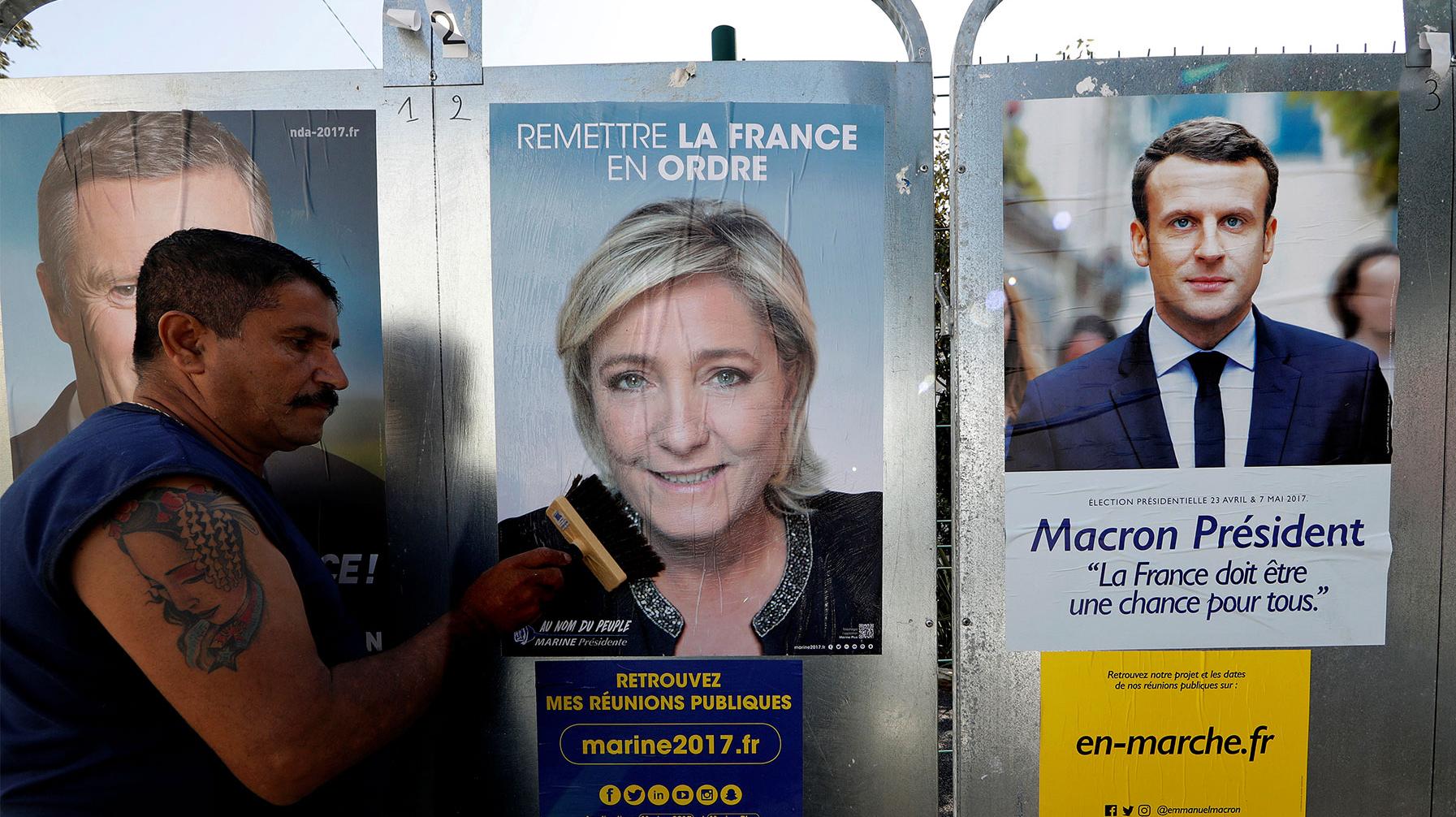It is likely Monsieur Emmanuel Macron will win the second round of France’s presidential elections on 7 May. During the election campaign, when asked about rumours of an affair with a (male) journalist, Mr Macron replied that maybe the one having the affair was his hologram. He was also trying to strike a blow at his opponent, Jean-Luc Melenchon, who had literally ‘sent’ a hologram to a Paris TV debate few days earlier.
The point here, however, is that Mr Macron himself seems to be a hologram, or something of sorts. More than any other candidate, he has been groomed in vitro by a part of the French elite; prominent businesspeople; the banker-intellectual-civil servant, Jacques Attali; high civil servants close to the Socialist Party, and the Rothschild Bank (where Macron worked) have all contributed to his meteoric and unpredictable rise. What he wants to do, is not much clear. While he has spoken about liberalism, rights, Europe, and economic growth, everything in his programs has remained rather vague and generic. What is certain is that he has swept away the main traditional parties, from Hamon’s Socialists (stuck to a miserable 6.4%) to Fillon’s Republicans (20%); and the battle for the Elyseum will unfold between him and the still highly controversial, Marine Le Pen.
It is likely Monsieur Emmanuel Macron will win the second round of France’s presidential elections on 7 May. During the election campaign, when asked about rumours of an affair with a (male) journalist, Mr Macron replied that maybe the one having the affair was his hologram. He was also trying to strike a blow at his opponent, Jean-Luc Melenchon, who had literally ‘sent’ a hologram to a Paris TV debate few days earlier.
The point here, however, is that Mr Macron himself seems to be a hologram, or something of sorts. More than any other candidate, he has been groomed in vitro by a part of the French elite; prominent businesspeople; the banker-intellectual-civil servant, Jacques Attali; high civil servants close to the Socialist Party, and the Rothschild Bank (where Macron worked) have all contributed to his meteoric and unpredictable rise. What he wants to do, is not much clear. While he has spoken about liberalism, rights, Europe, and economic growth, everything in his programs has remained rather vague and generic. What is certain is that he has swept away the main traditional parties, from Hamon’s Socialists (stuck to a miserable 6.4%) to Fillon’s Republicans (20%); and the battle for the Elyseum will unfold between him and the still highly controversial, Marine Le Pen.
Mr Macron, however, is not really the first such a candidate in Western Europe. Transnational elites for example empowered (unelected) technocrats like Mario Monti in Italy or George Papademos in Greece in 2011; what now strikes even more is the fact Mr Macron has become the presidential favourite in few months, since he left the Socialists and founded his own movement, En Marche !, in August 2016. At a first glance, his victory on 7 May would be good for Europe and the EU, since the preservation and potential strengthening of Brussels’ (and Frankfurt’s) institutions are among his key election campaign aims. Yet will he really dare propose bold reforms? Or will he stick to highly vested interests, some of which are embodied by his professional career? We might wonder whether a victory for Marine Le Pen, an outspoken opponent of the EU, would mean that ‘shock’ Europe seems to badly need?
In a sense, Le Pen’s non-exciting performance in the first round has been surprising. After all, this was her big chance. Despite some harsh positions on immigration and Europe, Madame Le Pen has (in part) freed the Front National from many ghosts of the past, and even broken (or so she says) with her father and political mentor. Her democratic credentials look rather solid, and the FN is now more rooted and institutionalised on France’s territory. Yet French citizens have expressed more preferences for the ‘elite candidate’, political novice, and…yes, hologram-like, Emmanuel Macron.
In light of his political upbringing and support, Mr Macron represents continuity rather than rupture. After all, he was a Minister under Hollande and worked for a secretive and influential investment banker like Rothschild. All of this seems to suggest that many French generally support the status quo. Where is then the much-talked French malaise, the dissatisfaction with the establishment, the protest against globalisation?
A closer look at data is quite revealing. As was predictable, Mr Macron has won the support of the wealthier (32% of those earning more than 3,000 Euro/month voted him) and better educated (30% of those with the highest educational degrees), but has let down the youth and poor. A surprise? Among those in the age range 18-24, only 18% chose him; compare with 30% for Mr Melenchon and 21% for Ms Le Pen. Among the ‘poor’, a shocking 32% went to Le Pen (particularly popular among blue collars), 25% to Melenchon and just 14% to Macron. The latter should reflect in depth on these figures. Regions such as the Pays de la Loire, somewhat representative of a ‘deep France’, with both formerly industrial areas (Nantes, Le Mans) and touristic countryside (vineyards, heritage, and so on), generally opted for Mr Macron. But how long will this ‘deep France’ remain relatively affluent? When will the winds of globalisation start hitting hard, as they did in other parts of Europe and France itself?
Furthermore, if elected, Macron will face the risk of a likely cohabitation with the National Assembly. With no political party apparently able to reach a rather low threshold like 25%, France must brace itself to the risk of a large governing coalition — as is the case in Germany and Italy — with all the risks this entails in terms of stagnation, slow decision-making, constant necessity to compromise, and even corruption. Grand coalitions are a form by which the ‘establishment’ tends to entrench itself in power — farewell participation and democracy!
To sum up — does Mr Macron embody a new course, a new deal for France or Europe? Or will we see ‘more of the same’? Would Marine Le Pen strike a decisive blow to European integration or rather dig the grave for this EU and open up the possibility for a new a better one? The final word, as always, to electors!






